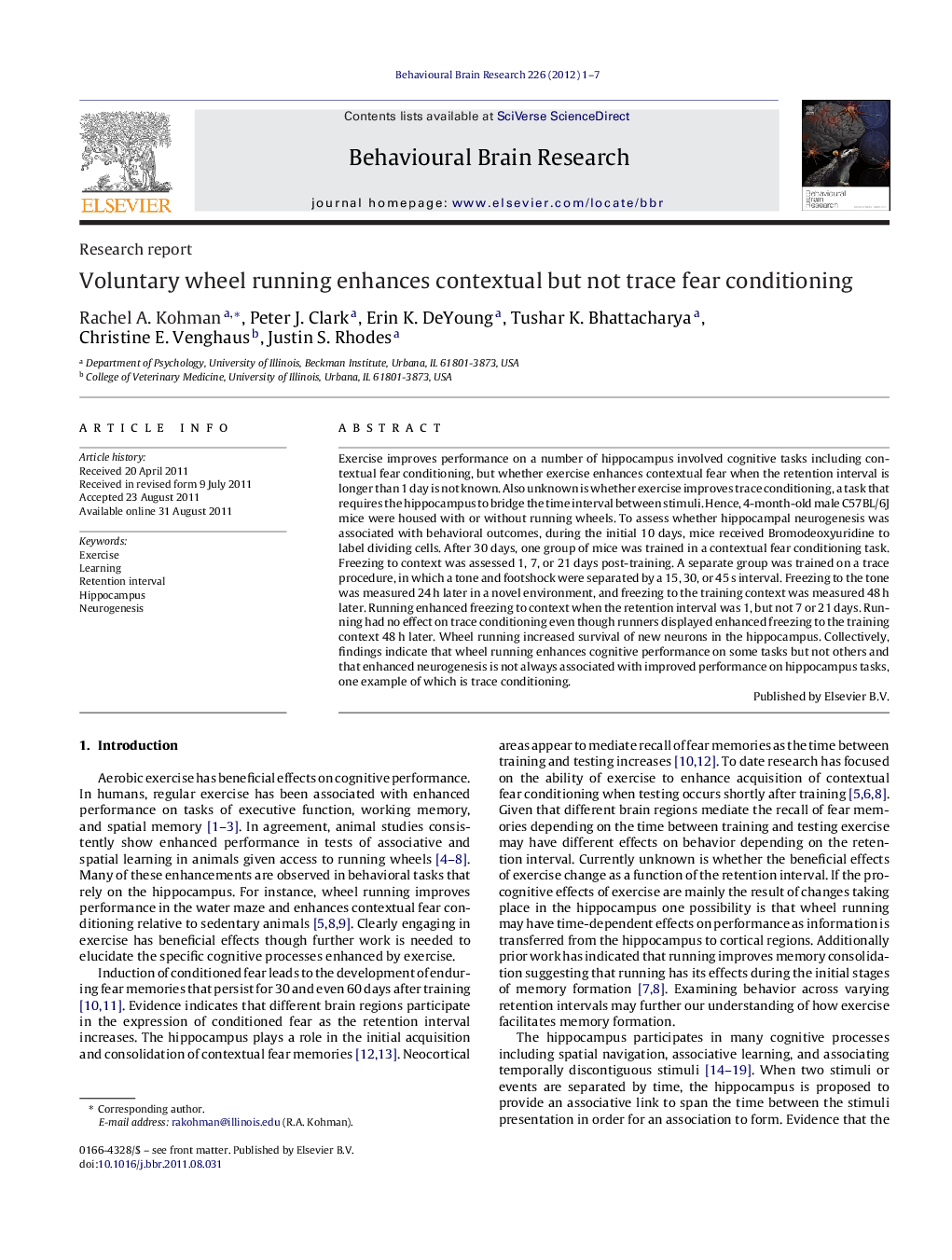| Article ID | Journal | Published Year | Pages | File Type |
|---|---|---|---|---|
| 4313486 | Behavioural Brain Research | 2012 | 7 Pages |
Exercise improves performance on a number of hippocampus involved cognitive tasks including contextual fear conditioning, but whether exercise enhances contextual fear when the retention interval is longer than 1 day is not known. Also unknown is whether exercise improves trace conditioning, a task that requires the hippocampus to bridge the time interval between stimuli. Hence, 4-month-old male C57BL/6J mice were housed with or without running wheels. To assess whether hippocampal neurogenesis was associated with behavioral outcomes, during the initial 10 days, mice received Bromodeoxyuridine to label dividing cells. After 30 days, one group of mice was trained in a contextual fear conditioning task. Freezing to context was assessed 1, 7, or 21 days post-training. A separate group was trained on a trace procedure, in which a tone and footshock were separated by a 15, 30, or 45 s interval. Freezing to the tone was measured 24 h later in a novel environment, and freezing to the training context was measured 48 h later. Running enhanced freezing to context when the retention interval was 1, but not 7 or 21 days. Running had no effect on trace conditioning even though runners displayed enhanced freezing to the training context 48 h later. Wheel running increased survival of new neurons in the hippocampus. Collectively, findings indicate that wheel running enhances cognitive performance on some tasks but not others and that enhanced neurogenesis is not always associated with improved performance on hippocampus tasks, one example of which is trace conditioning.
► Exercise enhances selective hippocampus dependent cognitive processes. ► Cognitive performance in runners remains stable across time. ► Increased neurogenesis may not always be associated with improved learning. ► Runners and sedentary mice show similar acquisition of trace fear conditioning.
